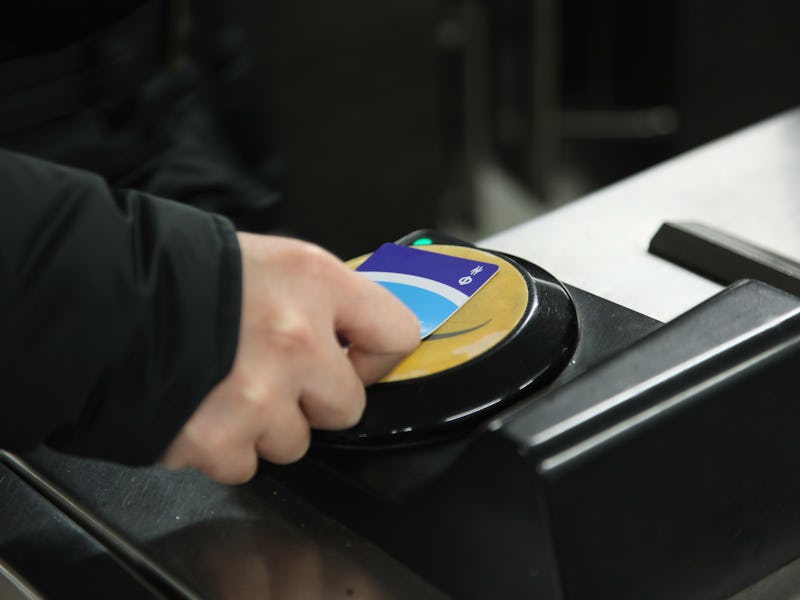Why the MTA Ditching New York's Metrocard for an Oyster System Is So Great
Welcome to the future, New York City.

New York is gearing up to join the 21st century. Before the end of the decade, the Metropolitan Transportation Authority (MTA) plans to ditch the magnetic strip Metrocard and replace it with a new system where riders tap a smartphone, bank card, or MTA-issued card on a reader.
I’m going to put my biases up front here: I believe this is going to be the best thing to ever happen to New York City public transportation.
Transport for London (TfL) launched a swipeless card system, called the Oyster card, back in 2003. When I moved to London back in 2010, TfL was still adding new ideas into the mix, like support for National Rail services that ran inside the capital.
These days, almost every way you can think to get around London is covered by Oyster. Even cable cars, riverboats, and trams run on the system.
The Oyster card is pretty magical. With a tap of the card on the reader, the ticket barriers open up to anyone whose Oyster card contains enough riches to make at least one journey. Passengers add funds at ticket machines by tapping the card, adding money by a form of payment of their choice, and then tapping the card again to transfer the funds to it. The card has a chip, much like the one in contactless bank cards, that has proven itself to be rather versatile. Witness the wizard that put the chip in his wand:
After having lived in London for four years, I moved to New York in the summer of 2014. TfL, at that time, was preparing to move beyond the Oyster card system to full-blown contactless payments. This skips the need for the Oyster card altogether by letting passengers place a compatible bank card on the reader. The money is charged directly onto the card with no need to top-up.
Where Oyster cards support time-based unlimited tickets, TfL instead “cap” the card payments at the same price as a daily or weekly ticket, whichever works out cheapest. So simple.
Metrocards baffled me when I arrived in New York. How does the most populated city in the country cope with such an antiquated system? When a candidate for President of the United States needs to try five times to get through the subway barriers, you know something’s wrong.
As the Big Apple trundled on with its swipey nonsense cards, Silicon Valley was making waves across the pond. Apple switched on its Apple Pay service in the UK last year, and thanks to TfL’s groundwork in getting contactless card support going, passengers could immediately use their Apple Watches as some sort of hyper-futuristic arm bands.
It’s not just Apple Watches, either. Barclays offers the bPay wristband that works the same way, while Swatch has teamed up with Visa to put a chip in a watch that lasts for more than a day. The Swatch isn’t available to Brits just yet, but it does point to a future where Londoners are just tapping their non-smart watches at the barriers.
For people that have used both systems, the change can’t come soon enough. “Metrocard: Swipe too slow, swipe too fast, and you probably will need to swipe it a few more times if you don’t get it by then,” Luke Villapaz, a New York-based journalist who studied abroad in London told Inverse. “The Oyster has its own gripes, like tap in tap out, but generally you’re not fighting with the reader for moments that feel like an eternity.”
“I mean we spend so much of our lives swiping mindlessly on Tinder that the chance to tap rather than swipe just once in awhile should really be welcomed,” Max Burman, a Londoner now working as a New York journalist, adds. “Also if Hillary Clinton - surely the archetypal ordinary, regular New Yorker - is stumped by the swiping system then frankly we all deserve better.”
But even if it makes sense to move on, the trusty Metrocard will be missed. One source that I spoke to recalls using the flexible card as an eating utensil. Others have shown their love through art pieces, cutting the yellow cards into stunning pictures. Some even bake Metrocard-themed cookies.
The MTA will be saying goodbye to a system that has served it well since 1993. New Yorkers will likely mourn its loss, but if what replaces it turns out half as good as the Oyster card system, bring it on.